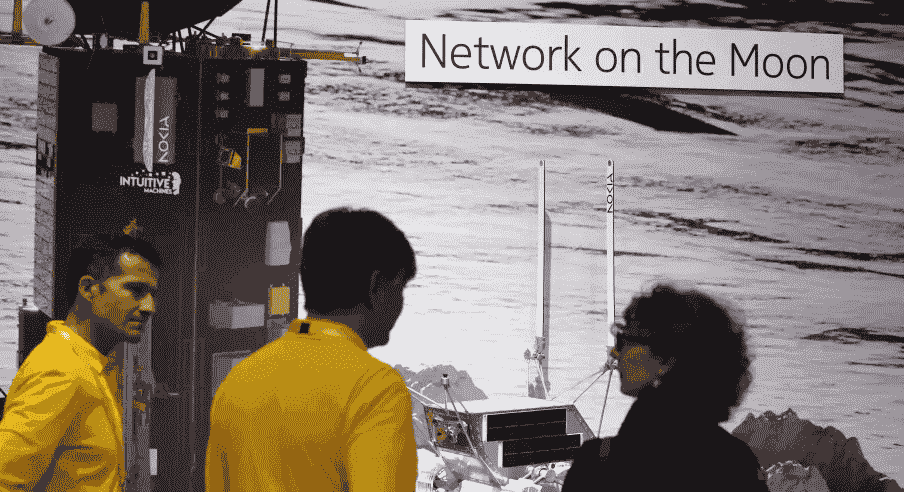
Nokia has announced that it will deploy a 4G internet service to the Moon as part of a forthcoming space mission.
The technology, according to the corporation, will ideally pave the way for future lunar discoveries and the potential for human presence on the Moon and beyond.
Lunar Network’s Vital Connectivity Capabilities
An antenna-equipped base station stowed in a Nova-C lunar lander designed by Intuitive Machines and an accompanying solar-powered rover will power the network. Between the lander and the rover, an LTE connection will be established.
The infrastructure will be placed in the Shackleton crater on the moon’s southern limb. According to Nokia, the technology is built to resist the harsh conditions of space. The network will be utilized in Nasa’s Artemis 1 mission, sending the first humans to walk on the moon’s surface since 1972.
Nokia claims that its lunar network will provide important communication capabilities for a wide range of data transfer applications, including vital command and control tasks, remote control of lunar rovers, real-time navigation, and high-definition video streaming.
Read more: Planetary Parade: Five planets will align at the end of March; Here’s where you should look!
Nokia Aims To Help Future Moon Explorations

Nokia unveiled the project in 2020 after being chosen by NASA, and its Bell labs were awarded $14.1 million to support it, CNN reported at the time. According to the blog post, Nokia will initially test the lander’s short and long-range communication capabilities at distances ranging from a few hundred meters to two to three kilometers.
Finding ice on the moon is one of the goals Nokia has set for its lunar network. Although much of the moon’s surface is now dry, recent unmanned flights to the moon have revealed ice remnants locked in shielded craters near the poles.
Such water may be purified and utilized for drinking, separated into hydrogen and oxygen for use as rocket fuel, or separated to give astronauts with breathable oxygen.
Read more: Drug shortages are on the rise, posing a threat to national security

